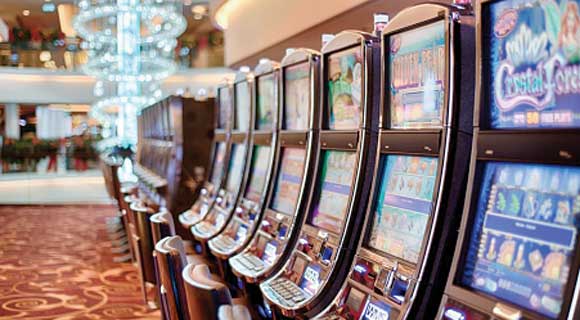Learn More about the History of Slot Machines Here
By Space Coast Daily // October 20, 2020
Slot Machines: History of Creation and Current Realities

Slot machines are one of the best recognizable aspects of the gambling experience.
Yet, players know surprisingly little about their history. As it turns out, roulette machines have been with us since at least the 1880s. Well, if not slot machines per se, then at least related gambling devices. Sure, today it’s easy to find a place to experience a gambling website. You can simply visit the official FreeRouletteDoc site and pick your favorite game.
When it comes to slot machines, though, there is so much to know, even if their gameplay is admittedly one of the simplest. With this in mind, we will now take a crack at the history of slot machines’ invention and the current realities of these games.
The History of Slot Machines Invention
The first slot machine was invented by Charles August Fey back in 1894. The machine operated with coins and it became the first of many to follow. Fey piloted his machine in a local saloon and the machine became an instant hit, prompting Fey to quit his day job and open a factory.
In 1898, Fey built his first three-reel slot machine that also had automatic payouts, paving the way to the future of the gambling industry. One of the most famous machines at the time was the Liberty Bell, proving an immediate hit in San Francisco.
Yet, Fey didn’t remain without competitors. His invention was quickly copied by the Mills Novelty Company. Slot machines proliferated as a result and in San Francisco, there were some 3,300 units before the city initiated a ban in 1909.
That ban was actually what prompted the Industry Novelty Company to circumnavigate regulations and add fruit symbols to the reels, making the games a little less gambling-oriented after all.
Once again, the Mills Novelty Company rushed to copy the idea. Well, you might think about them what you will, but the jackpot mechanic was actually introduced by the Mills in 1916. Slot machines picked immense popularity in the 1920s and the 1930s, admittedly linked to the economic hardships of the United States at the time.
Around the 1950s, the idea of coin multipliers debuted. In other words, the size of the payout would correspond to the number of coins inserted into the game beforehand. Next came the video slot machines, and that is where it really got interesting.
Slot Machines in the 21st Century
With the introduction of video slot machines in Las Vegas in 1975, the industry’s true re-shaping began. Video slots meant that the entire industry would change in new and unexpected ways.
The games became more dynamic, introducing various features, new sounds, themes, and graphics. With the introduction of electronic systems in 1986, it was finally able to build the so-called super jackpots which were combined from a network of video slot machines, incentivizing players to try their luck more often.
In 2003, Las Vegas slot machines were already paying out the whopping $40 million! Today, though, the industry has been overhauled completely. Yes, Nevada still has 200,000 slot machines in 2020, but this is not the main takeaway.
As of 2010, there were some 830,000 electronic gaming machines in the United States, but this number is now closer to one billion. While the United States has undertaken some measures to restrict gambling, such as the Unlawful Internet Gambling Enforcement Act of 2006, gambling has been going strong at licensed casino resorts.
Of course, video slot machines have evolved and they no longer need a corporeal form. In fact, you can enjoy video slot machines over the Internet as part of the offer of online casinos, which are now the new Las Vegas of the Internet.
There are all sorts of new titles you can experience, from 3D games to video slots, to progressive jackpots, to the so-called skill-based and i-Slots where the players can determine and influence many of the outcomes.
The truth is that slot machines have evolved in ways that Charles Fey could not have imagined back in 1894. Even though his name is now known only in industry circles, he has changed the world beyond his wildest dreams.












